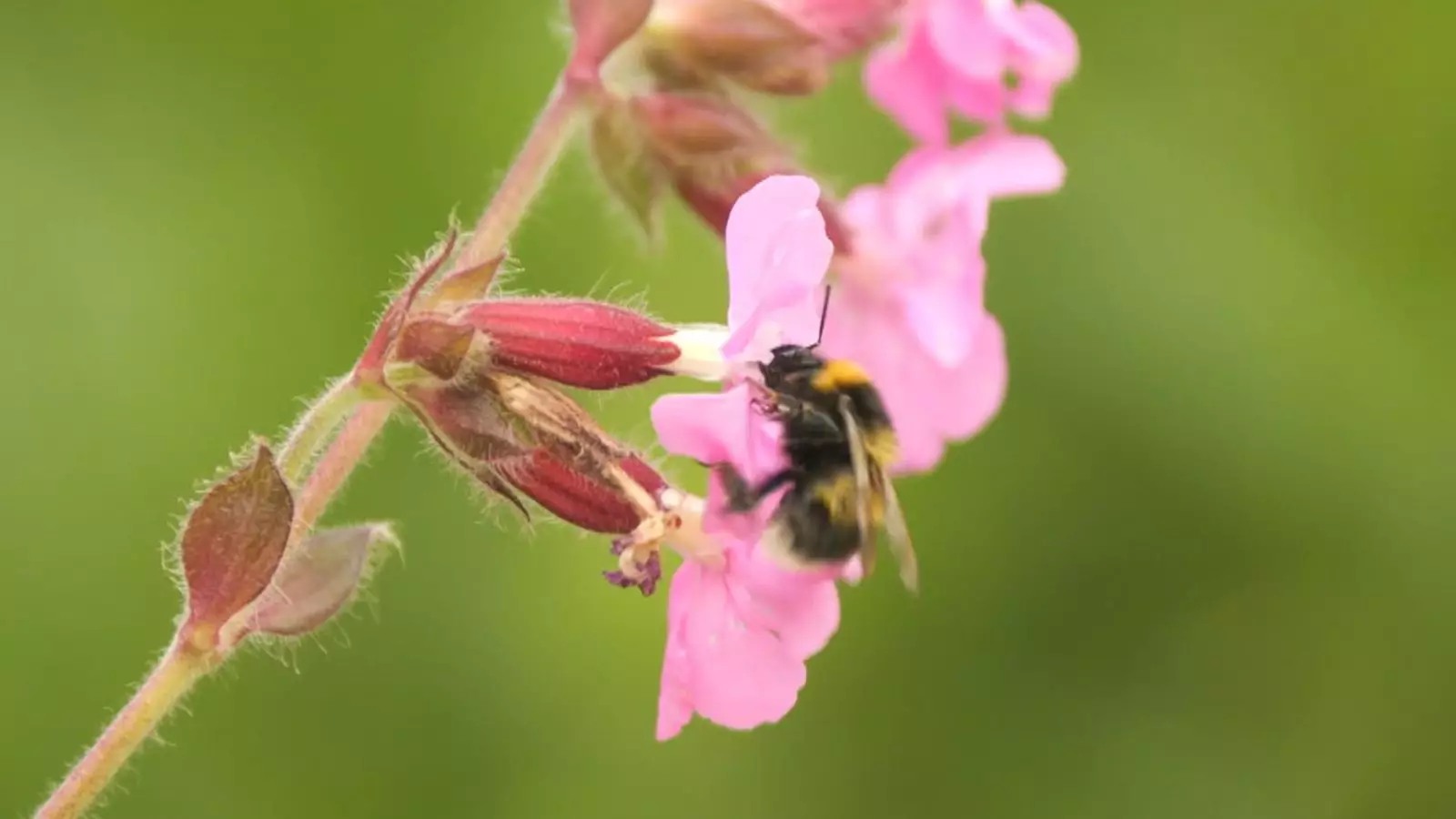The decline of bee populations is not just a tragedy for nature; it’s a clarion call for humanity to reassess its relationship with the environment. Scientists in the UK, particularly at Kew Gardens’ Wakehurst site, are profoundly concerned about this plight. With the world’s bee population plummeting—around 60% in two decades in the UK alone—it is a grim reality that threatens not only biodiversity but the very framework of our food systems. This crisis is spurred by the interrelated consequences of habitat destruction, climate change, and widespread pesticide use, all of which synergistically erode a vital segment of our ecological tapestry. Alarmingly, these factors aren’t mere nuisances; they are harbingers of an impending catastrophe that could lead to the unraveling of our agricultural systems.
It is imperative to recognize that this problem is not confined to a single region but is a global phenomenon. The lack of comprehensive research means we are scrambling to understand the depths of this issue while our pollinators are on the brink. Why, in an age of technological advancement, has so little been done to address this impending doom? Instead of recognition, we see paralysis—a political and social inertia that fails to grasp the urgency of the situation.
Forward-Thinking Solutions: Pollinator-Friendly Landscapes
In response to this pressing crisis, Kew Gardens is taking an innovative step with the deployment of cutting-edge bio-acoustic sensors in trees to map bee preferences. Researchers are striving to create urban landscapes that are bee-friendly—a commendable initiative that highlights the need for green planning in cityscapes. The insight gained from these sensors could revolutionize how urban planners approach landscaping in cities. Selecting the right types of trees to plant is not just about aesthetics; it’s about creating sustainable habitats for pollinators, pivotal for our survival.
Dr. Janine Griffiths-Lee’s perspective encapsulates the urgency as well. The statistic that nearly 90% of flowering plants depend on pollinators is staggering. It deliberately bridges the gap between nature and our daily lives, illuminating the essential role these creatures play in our ecosystems. Failure to act means fostering a landscape devoid of vitality, where crops fail, and food scarcity becomes the norm. Urban areas must become sanctuaries for bees, a model that counters the encroaching threats of modern living.
Understanding the Bigger Picture of Biodiversity Loss
Susan Raikes, the director of Wakehurst, describes the estate as a “living laboratory” submitting that Nature-based solutions are key to navigating the adversities posed by climate change. It is an insightful metaphor; after all, living systems are constantly evolving, and so too must our approaches to conserving them. Her assertion about “twin crises” strikes at the heart of our current environmental philosophy. Biodiversity loss and climate change are not independent issues but intricately entangled problems that demand multifaceted solutions. Understanding which plants from more temperate climates can flourish in the UK as conditions alter is no longer a luxury but a necessity.
The urgency here lies in the understanding that each tree is more than just a tree; it is the cornerstone of a habitat, a host of resources crucial for survival. The selection of trees for this study, including both native and non-native species, reflects a nuanced understanding of ecology that must be expanded into broader discussions about conservation. It serves as a reminder that adaptation should not only reside in the essence of nature but also in human policies and practices.
A Collective Responsibility
The momentum gained from this research reflects how integral it is for communities, policymakers, and environmental advocates to unite. The potential to influence urban development can’t be overstated. Initiatives like those at Kew Gardens must inspire governance that prioritizes ecological considerations over short-term economic gains. As citizens, we have a collective responsibility to advocate for a world that values our ecosystems—one where the plight of pollinators is met with urgency and action. This drive must be amplified through education and activism, confronting cynicism with informed hope that acknowledges the delicate balance upon which human life depends.
If we choose to remain passive, we risk descending into an ecological abyss that could redefine life as we know it. The urgency in our actions must match the urgency in the unfolding reality. Adapting our urban landscapes to nurture pollinators isn’t just an act of preservation—it is an essential step to ensure that the world remains a fertile ground for life, flourishing not just for now, but for generations to come.



Leave a Reply